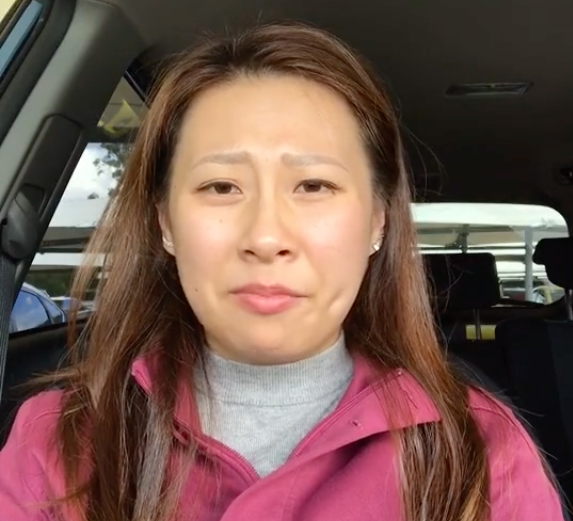The Independent's journalism is supported by our readers. When you purchase through links on our site, we may earn commission.
Woman wakes up with Irish accent after getting her tonsils out
Initial disbelief from friends, but dentist from Brisbane apparently suffers from ‘foreign accent syndrome’

An Australian woman woke up to find she suddenly had what appeared to be an Irish accent, ten days after having an operation to have her tonsils taken out.
Angie Yen, a dentist from Brisbane, noticed her voice had changed on the morning of 28 April when she began to sing in the shower.
Instead of her usual Australian accent, Ms Yen found she had unaccountably developed an Irish lilt while she slept.
In a panic, she called a friend who told her about “foreign accent syndrome” and sent her some links with information about it.
Reading that one of the causes of the condition was a stroke, or that it might herald the onset of one, she went to a hospital.
As she was showing no signs of illness or any other symptoms, she was told to go home to rest.
Documenting the strange condition by creating an account on TikTok, Ms Yen, who has never even been to Ireland, said she spent the whole day “freaking out”.
The ear, nose, and throat specialist who had overseen her tonsils operation advised her to sit tight and let her body heal.
Ms Yen’s family and friends were in disbelief and many laughed, said that it wasn’t real and that she was joking, she told News.com.au.
Days ticked by and the accent persisted, leaving them in no doubt that she wasn’t faking the condition.
Ms Yen decided to go public with her condition after seeing how others who had experienced the syndrome were laughed at because it is so rare and not well understood.
@angie.mcyen Day 2: I still can’t believe I woke up with an Irish accent yesterday. I’ve never been to Ireland. I grew up in Australia. My Aussie accent is gone
♬ original sound - angie.mcyen
It has now been more than two weeks since she woke up with her new accent and the condition has not gone away.
Ms Yen has made appointments for an MRI and to see a neurologist in early June on the advice of a specialist. While she has medical insurance, the cost of treatment is not fully covered, she says in one video.
In other videos, Ms Yen responds to questions posted by people who claim she is faking the condition and, in one, that her accent is “terrible” and that her Australian accent still comes through.
She patiently responds that she agrees her accent is terrible, reminding viewers that the condition is called “foreign accent syndrome” and is not specifically Irish or any other accent, but is a serious neurological condition that is having a real effect on her life.
In the videos, while her accent sounds predominantly Irish, at times it appears to meander through other parts of the world. Her Australian vocabulary and colloquialisms remain unchanged, as she demonstrates in another video.
The syndrome is usually the result of a stroke, head trauma, or migraines. The symptoms are a distortion of speech patterns and coordination most easily described by their proximity to a particular accent, though are not specific to it.
Some research indicates that the condition is sometimes linked to motor function in the brain, meaning that the change in speech is mechanical and therefore cannot be tied to a specific accent, but is an uncontrolled distortion of speech patterns and rhythms.
Treatment usually involves intense speech therapy to relearn the patient’s original accent.
As the disorder is so rare, there are few other prescribed treatments and not a great understanding of the condition.
Join our commenting forum
Join thought-provoking conversations, follow other Independent readers and see their replies
Comments
Bookmark popover
Removed from bookmarks